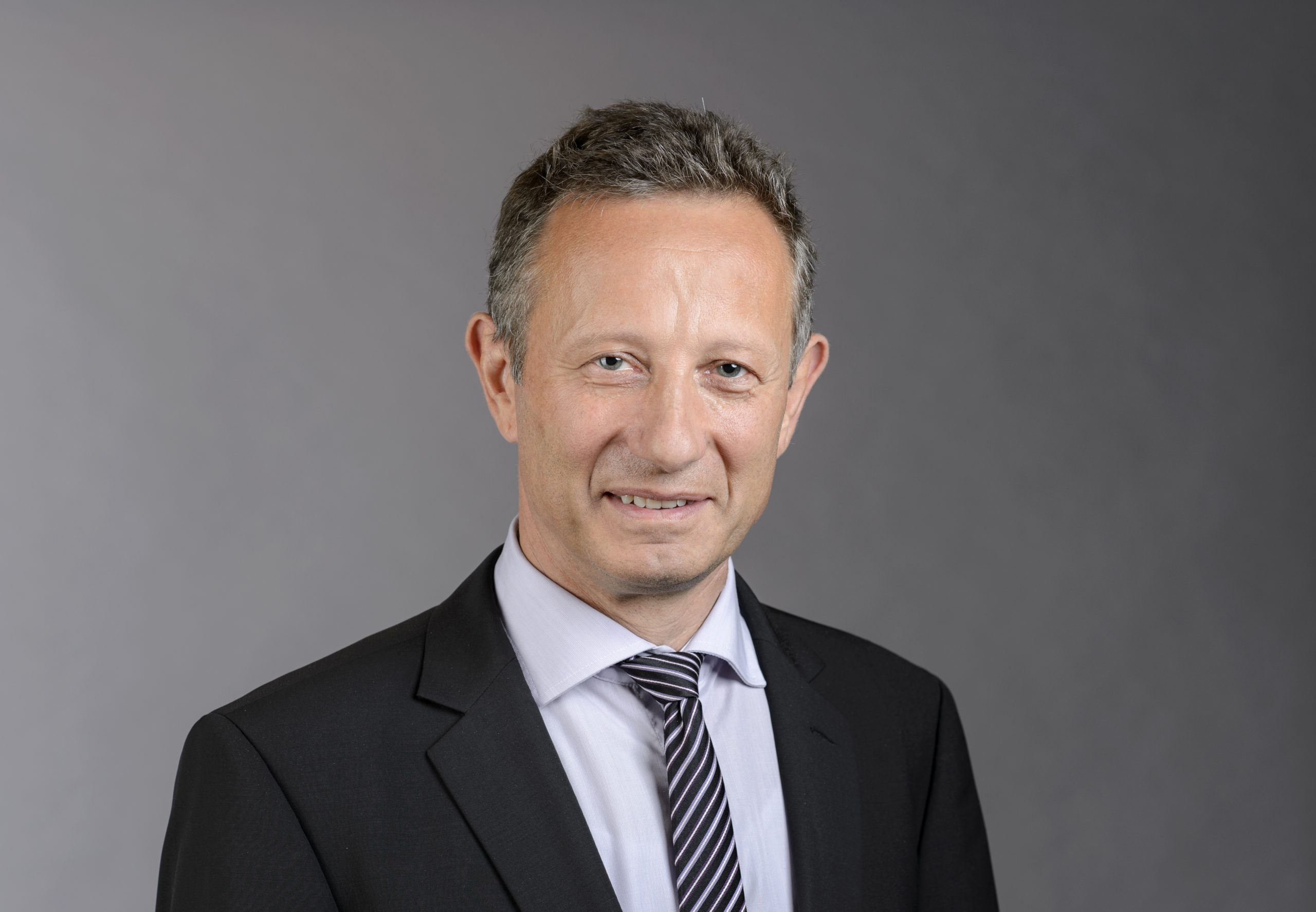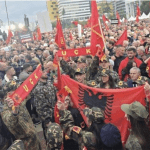By Rudina HOXHA
On the eve of the football match between Albania and Switzerland in the context of the European Championship 2016, the Swiss Ambassador to Albania, Christoph Graf shares his opinions with Tirana Times readers about the expectations about this “historical game” as he puts it.
“This game is historical: for the first time two brothers play against each other on different teams at such a high level tournament. And let’s not forget that this is also the first time Albania qualifies for a high level championship. It’s a great achievement!,” Graf said. The Ambassador highlights that on this occasion, the Swiss Embassy in Tirana will organize a screening for guests. “It is a unique opportunity to celebrate the close relations and the friendship between Albania and Switzerland.”
But apart from that, he also comments in this interview about the hottest political and economic issues which concern the country for the time being.
Full interview below:
Mr. Ambassador, the European Championship 2016 is approaching fast. Is football your passion? What is your favorite football team?
I enjoy football very much. I am a loyal fan of the Swiss team “Young Boys from Berne.” A couple of years ago, I was a regular supporter in the stadium together with my son. I like football because it is a people’s game. Players and spectators share the joy, regardless of age, social status, culture and origin:High officials and CEOs side by side with workers and youngsters. Football is also about team play. You can win only jointly, you depend on your colleagues. You bear your defeats jointly and you celebrate your victories together. I am convinced that such team behavior radiates also to other spheres of life.
Are the Swiss talking about the much-expected football match Albania and Switzerland? Which emotion do you have, when you see high level expectations about this match in Albania?
In Switzerland and among the Swiss in Albania there is a great interest about the match this Saturday. At the Swiss Embassy in Tirana we are organizing a screening for guests. It is a unique opportunity to celebrate the close relations and the friendship between Albania and Switzerland.This game is historical: for the first time two brothers play against each other on different teams at such a high level tournament. And let’s not forget that this is also the first time Albania qualifies for a high level championship.It’s a great achievement!
A Swiss parliamentary delegation took part in the NATO Parliamentary Assembly which was held in Tirana for the first time (May 28-30, 2016). What was the Swiss stance and thoughts set forth in this important event?
Switzerland is a neutral country and we support the security agenda of NATO as a member of the “Partnership for Peace” . This flexible arrangement of cooperation with NATO suits both the NATOcountries and Switzerland. For instance, in the three so called “Geneva Security Centers” Switzerland offers international dialogue platforms on security policy issues.
Amidst the debates on the reform in judiciary, the Swiss Embassy supported an interesting forum – “Investing in Albania: Challenges and Opportunities.” What were your impressions from what was discussed and concluded? How do Swiss investors tend to look at Albania?
This event, organized by the Ministry of Foreign Affairs and supported by Switzerland, debated opportunities and challenges investors face in Albania. I observed many “institutional participants” , such as AIDA, chambers of commerce, associations, but not so many entrepreneurs and investors. A Swiss investor talked about his 10 year experience in realizing a major touristic infrastructure project in Albania. During this period he piled more than 40 kilos of paperwork in permits, licenses, legal documents etc. This shows that the administrative burden is still a concern for investors. He is passionate about the country andshared that one needs to have endurance and patience. For private business the biggest challenge remains, however, aproperrule of law: investors want to feel safe and secure; they want to do business in a predictable environment.In this context, the judiciary reform isurgent, but at the same time its approval by Parliament is just a first step; its implementation will require enormous efforts andcredible political backing.
The Swiss ‘taste’ in Albania seems stronger lately. Is there a reason for that?Are you satisfied with the current level of the bilateral relations between Albania and Switzerland?
Switzerland is interested in a stable and prosperous Western Balkan region that moves onan integration path closer towards Europe. Football helps of course to bring Albania back on the map and closer to Europe! The relations between Switzerland and Albania are excellent. They still focus mainly on cooperation projects. Switzerland supports the Albanian people with around 20 million Euros yearly througharound 25 projects. I would be pleased to see the focus shift from cooperation grants to more commercial and economic exchange. This however depends a lot on improvements of the business climate in Albania.
Some time ago, you made headlines with your declaration “Don’t expect wonders from Switzerland.” In your view, what should change in the mindsets of Albanian institutions and people when it comes to working methods?
It’s the Albanians who will have to shape and decide on future reforms. The international community stands ready for support. Albania has made steady progress in the last 25 years. The question is: can you make faster and deeper progress? Faster by reducing unnecessary polarization in political decision-making and deeper by consulting people in a broader way, being more inclusive. Albanian people know well what they want and what is good for the country. I encourage politicians to listen carefully to people’s voices and the people to ask for more transparency and accountability. Legitimacy and credibility of state institutions are crucial in a functioning democracy. Another issue that I observe: Albanians often base their positions on rumors, perceptions and even conspiracy theories instead of facts and figures. It is important that reliable data, independent sources and surveys are available to the public.
The Albanian Minister of Economic Development, Milva Ekonomi recognized lately the merit of the Swiss Cooperation for the application of bottom-up business model in the field of tourism. How do you characterize the bilateral cooperation in this and other fields?
Swiss cooperation follows mainly a bottom-up approach, strengthening consultations, the people’s voices. I believe that broad ownership fosters sustainable results. Let’s take the Territorial Administrative Reform as an example. That process was marked by a relatively high degree of consultations.Switzerland supports inclusive mechanisms for decision making in its cooperation projects, be it in the field of tourism, local governance orhealth.
Switzerland is a federal state with four languages and diverse ethnic groups. Still it has managed to develop and maintain harmony despite ethnic, language, and cultural differences. What is the secret to this?
We see diversity as a richness and asset. We have to deal with different thinking and values every day. This is a permanent challenge and at the same time enriching; we learn a lot from others. Albania also has a rich and diverse religious culture with the three faith communities. The Albanian religious diversity builds on a similarrecipe as the Swiss cultural language diversity. Tolerance is here a key word. Do not fight other cultures, deal with them and learn from them. Build on your strength and strengthen them further!










